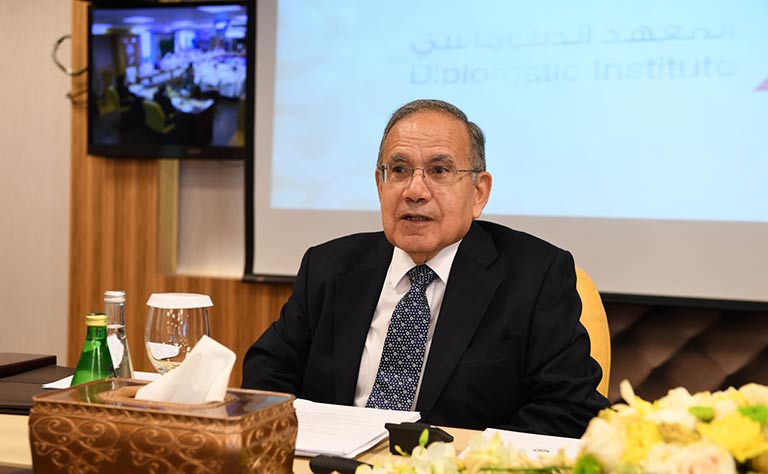Diplomatic Institute Seminar Discusses Repercussions of U.S. JASTA Law on Arab Security

Doha/Information Office/23 November 2016/ The Diplomatic Institute organized a seminar on the repercussions of implementing the Justice Against Sponsors of Terrorism Act (JASTA), which was endorsed by the U.S. Congress, on the Arab national security.
Qatar University's Professor of Law, Ibrahim Al Anani, lectured during the seminar in the presence of a large crowd of diplomats and Foreign Ministry officials.
Al Anani went over articles of the act, explaining the procedures that will follow it and the relevant international law principles.
He said that JASTA contradicts with the principle of equality in sovereignty among all states, which he said is the most important principle and norm regulating international relations as per the U.N. Charter. He added that the act jeopardizes the principle of state immunity from foreign prosecution and asset freezing.
Al Anani noted that one of the international relations' principles is that a country shall not resort to a domestic law to let go of an international commitment, saying that in the American situation it's unacceptable that Washington uses JASTA, an internal law, to override the international commitment of respecting states' immunity from prosecution in its legal system.
He touched on the definition of terrorism and how it remains a controversial issue in academic and political circles, noting that terrorism as defined in JASTA can't be imposed in terms of legality on other countries.
As for repercussions of the law on international and Arab relations, the Qatar University professor said the main goal of the law is that the United States exercises pressure on other countries, particularly Arab ones, adding that it would undermine international stability because other countries will try to issue similar laws, noting that the act is a tool of political pressure used by the United States to achieve its political goals in the region.
Qatar University's Professor of Law, Ibrahim Al Anani, lectured during the seminar in the presence of a large crowd of diplomats and Foreign Ministry officials.
Al Anani went over articles of the act, explaining the procedures that will follow it and the relevant international law principles.
He said that JASTA contradicts with the principle of equality in sovereignty among all states, which he said is the most important principle and norm regulating international relations as per the U.N. Charter. He added that the act jeopardizes the principle of state immunity from foreign prosecution and asset freezing.
Al Anani noted that one of the international relations' principles is that a country shall not resort to a domestic law to let go of an international commitment, saying that in the American situation it's unacceptable that Washington uses JASTA, an internal law, to override the international commitment of respecting states' immunity from prosecution in its legal system.
He touched on the definition of terrorism and how it remains a controversial issue in academic and political circles, noting that terrorism as defined in JASTA can't be imposed in terms of legality on other countries.
As for repercussions of the law on international and Arab relations, the Qatar University professor said the main goal of the law is that the United States exercises pressure on other countries, particularly Arab ones, adding that it would undermine international stability because other countries will try to issue similar laws, noting that the act is a tool of political pressure used by the United States to achieve its political goals in the region.

